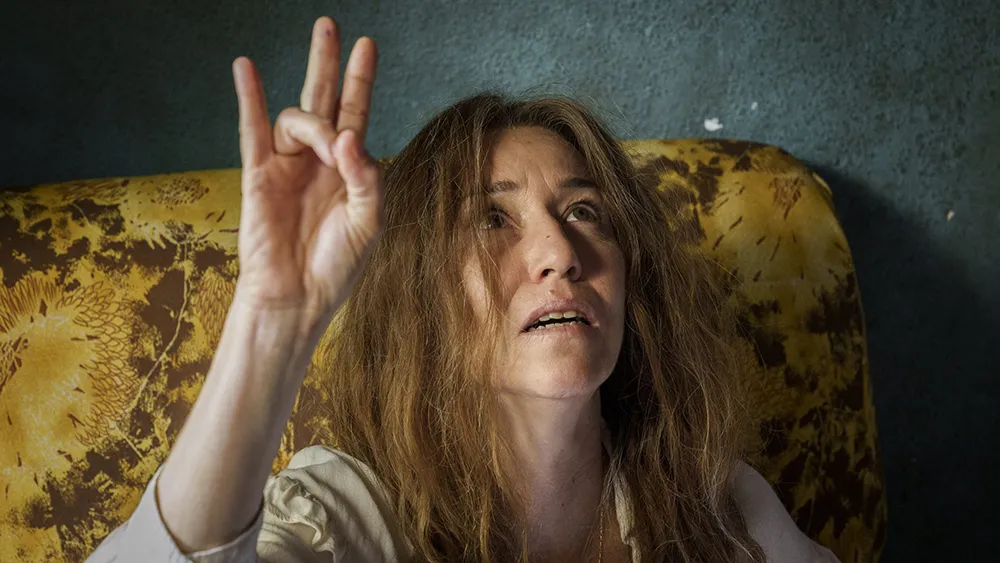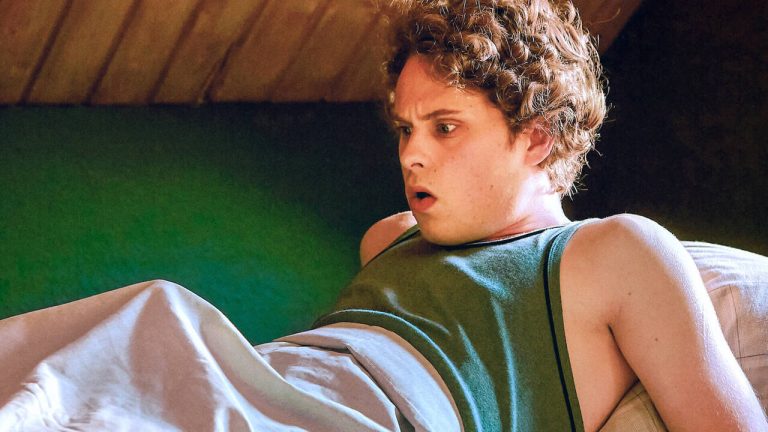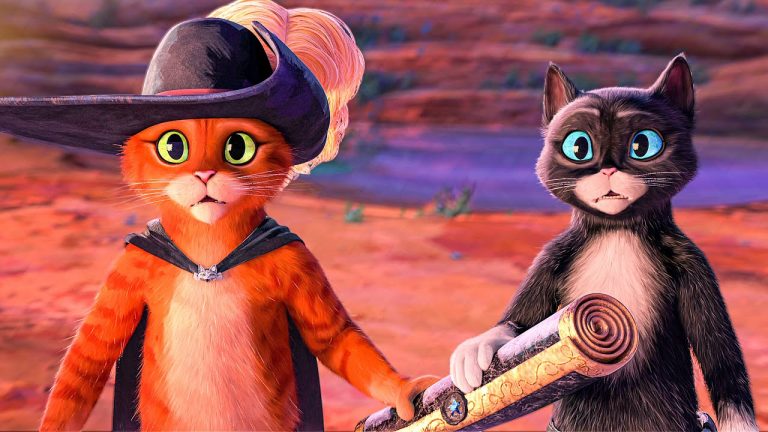Javier Calvo and Javier Ambrossi’s new show, “La Mesías,” is embedded in trauma and secrets. As much as the characters seek to escape it, their past catches up, threatening to wholly consume them. They haven’t fully resolved or grappled with the full blow of the implications and consequences entrenched in an unusually difficult childhood that was loaded with psychological distress and acute manipulation. Since they haven’t shaken it off yet, its painfully lingering shadow overrides the many other complications of life. It becomes this big, messy burden that defines their existence. Years have passed, yet the trauma is so deeply lodged within them that disengaging with it demands an honest acknowledgment of the price they have had to pay for it, which they aren’t ready to admit and confront.
The introduction immediately prepares us for a layer of the mystical. The mountains of Montserrat are said to be a magical portal to other worlds. Throughout the decades, the locals have reported apparent sightings of UFOs. Even alien abductions are rumored to have happened. In the opening episode, a film crew arrives to shoot a historical appearance of the Virgin of Montserrat. The camera technician, Enric (Roger Casamajor), seems palpably on the edge. He is returning to the place after many years.
This is where he spent a portion of his childhood with his mother, who also happens to be called Montserrat, and sister, Irene. It had been a rough one, and the series leaps back to depict it in extended flashbacks. The past is keenly interwoven with the present, the former’s fractious violence hanging heavy over the latter, dramatically affecting it. Enric is haunted by the re-emergence of a viral garish music video featuring a Catholic pop band, Stella Maris, one of whose members is his sister.
The ten-year-old Enric is thrust with the responsibility of looking after his younger sister once his mother decides she has had enough of her husband, who seems to be utterly disinterested in his own kids. The decision, however, leads the trio into choppy waters as Montse struggles to balance making a living and attending to her kids’ needs. She can’t quite get a grip and deflects Enric’s queries regarding when he and his sister might be able to go to school. She promises them she will find a good father for them and frequently disappears for entire days on end, leaving the brother and sister to fend for themselves.

Even if she finds herself hard-pressed financially, which pushes her into emotional precarity, she refuses to consider the support of her sister. This sends the family of three into a spiral of abandonment and neglect. The teenagers are caught up in a love-hate relationship with their mother, who professes her occasional tenderness and affection toward them but largely consigns them to a deplorable state in which, ultimately, they have to wage their own survival. Ana Rujas excavates the devastation of Montse as a mother who constantly wants to prove to her kids that she does care for them but cannot help being drawn astray by her own reckless bouts while foraging for a livelihood. Despite her sincere intentions, Montse’s destructive volatility turns her into someone who frequently loses her moorings.
But Bruno Núñez, essaying the ten-year-old Enric, singularly shoulders the first two episodes of the show that screened at the festival. There’s a profound sadness he exudes often without a word, lacing it with a heartbreaking fragility and vulnerability. I wanted to reach out and give him a hug and tell the young Enric everything will be fine. Núñez gives a solid emotional center to the series in its critical opening stretch, making us instantly root for his character, whom we will follow over the course of many years.
Spanning several years, the series traces a coming to terms with one’s scars and the need for healing, which is essential for growth. Forgiveness is key as Irene wrestles with wholly embracing her brother after a long period of deliberate distance. While the series jumps out in its authenticity, particularly in the childhood sections, as far as the first two episodes are concerned, I am hoping the remaining ones will do well in evoking the long shadow it cast on their adulthood.



![Tramps [2017]: Too Broke To Love](https://79468c92.delivery.rocketcdn.me/wp-content/uploads/2017/04/Tramps-768x432.jpg)



![Brighton 4th [2021]: ‘Tribeca’ Review – The journey of an ex-wrestler is a poignant and funny father-son story](https://79468c92.delivery.rocketcdn.me/wp-content/uploads/2021/06/Brighton-4th-highonfilms-1-768x432.jpg)
